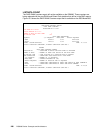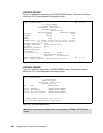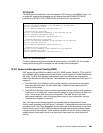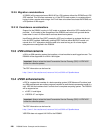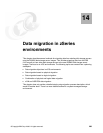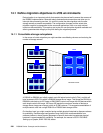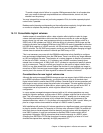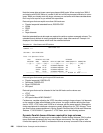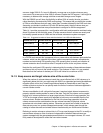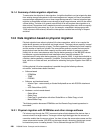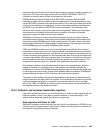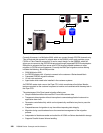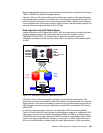
294 DS8000 Series: Concepts and Architecture
14.1 Define migration objectives in z/OS environments
Data migration is an important activity that needs to be planned well to ensure the success of
the DS8000 implementation. Because today’s business environment does not allow you to
interrupt data processing services, it is crucial to make the data migration onto the new
storage servers as smooth as possible. The configuration changes and the actual data
migration ought to be transparent to the users and applications, with no or only minimal
impact on data availability. This requires you to plan for non-disruptive migration methods and
also to guarantee data integrity at any time during the migration process.
14.1.1 Consolidate storage subsystems
In the course of a data migration you might consider consolidating volumes and reducing the
number of storage servers.
Figure 14-1 Consolidation opportunities when migrating to DS8000
A DS8100 or DS8300 can initially contain up to 64 logical control units (LCUs), and this will
later increase to 255 LCUs within a DS8000 storage server image. This allows the DS8100 or
DS8300 to simulate up to 255 times an IBM 3390-6 control unit image with 256 devices within
each single control unit image. 255 times 256 equals the maximum number of devices a
storage server image can manage, which is 65,280 volumes. This suggests consolidation of
multiple control units into a single DS8100 or DS8300 disk storage server.
On the other hand, you might consider having multiple physical footprints to disperse volumes
for availability. Possible target configurations may conflict with recommendations from
software platforms, where physical placement of specific data sets into separate physical
hardware is recommended for availability. For example, the manual
z/OS V1 R6.0 MVS
Setting up a Sysplex,
SA22-7625-09, states:
Storage server
Storage server
Not drawn to scale
FICON
Storage subsystem
FICON
Storage subsystem
FICON
Source disk servers
Consolidate
FICON



